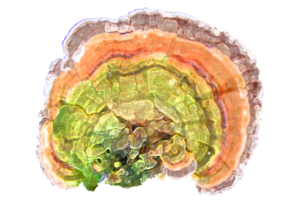Eliza WL, Fai CK, Chung LP
Abstract
AIM:
Patients with cancer frequently use herbs along with the conventional medical treatment, hoping to enhance recovery. Mushrooms have an established history of use in traditional oriental therapies. In Asian cultures, mushrooms are combined with herbal mixtures to treat cancer. This systematic review and meta-analysis draw from randomized, placebo-controlled, double-blind trials to assess the efficacy of Yun Zhi (YZ) for survival in cancer patients.
MATERIAL & METHODS:
Systematic review and meta-analysis technique were used to aggregate and analyze the efficacy of Yun Zhi on survival in cancer patients from 13 clinical trials using computerized database and manual search.
RESULTS:
The findings show that Yun Zhi results in a significant survival advantage compared with standard conventional anti-cancer treatment alone. Of patient randomized to Yun Zhi, there was a 9% absolute reduction in 5-year mortality, resulting in one additional patient alive for every 11 patients treated. In patients with breast cancer, gastric cancer, or colorectal cancer treated with chemotherapy, the effects of the combination of Yun Zhi preparation on the overall 5-year survival rate was more evident, but not in esophageal cancer and nasophayngeal carcinoma. However, subgroup analysis could not conclude which type of anti-cancer treatment may maximize the benefit from Yun Zhi.
CONCLUSION:
This meta-analysis has provided strong evidence that Yun Zhi would have survival benefit in cancer patients, particularly in carcinoma of breast, gastric and colorectal. Nevertheless, the findings highlight the need for further evidence from prospective studies of outcome to guide future potential modifications of treatment regimes. Recent patents on the use of mushrooms for the treatment of cancer are also summarized in this review.
Reference:
Recent Pat Inflamm Allergy Drug Discov. 2012 Jan;6(1):78-87

